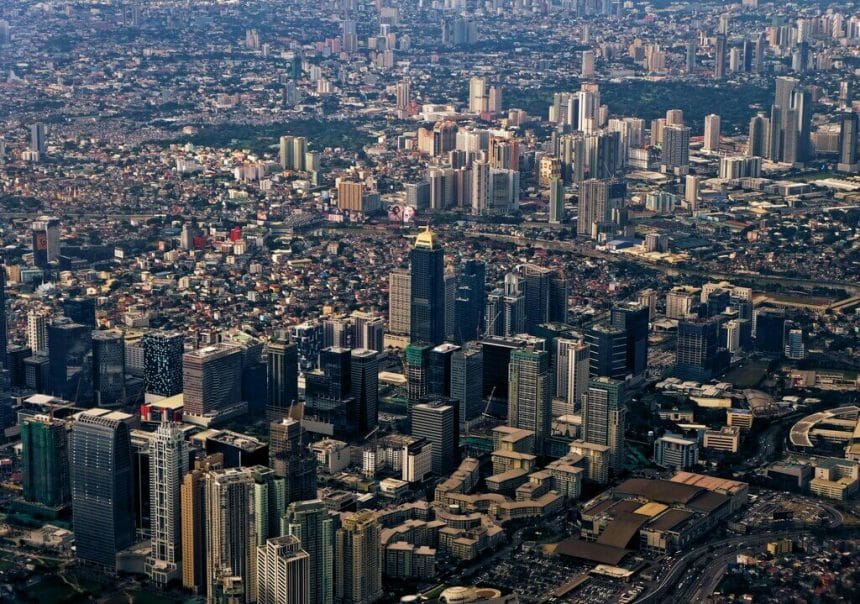The Foreign Investment Negative List in the Philippines (FINL) is a critical document outlining the sectors and industries in which foreign investors are restricted from or limited in participating. It is a key tool for understanding the regulatory framework and policies in the country, helping investors identify opportunities and navigate the various restrictions. In this article, we will discuss what you should know about the Foreign Investment Negative List in the Philippines.
What is the Foreign Investment Negative List in the Philippines?
The Foreign Investment Negative List in the Philippines (FINL), also known as the negative list, is a compilation of economic sectors in the country that have regulations regarding foreign ownership and participation. It consists of two lists: List A and List B. List A outlines areas where the Philippine Constitution or specific laws restrict foreign ownership. List B focuses on investment areas with limitations based on security, defense, health and morals, and protection for local Small and Medium Enterprises (SMEs).
The President can modify the negative list, except for activities restricted by the Constitution or statutes. Changes can only be made once every two years. The current version is the 12th edition, authorized by President Rodrigo Duterte through Executive Order No. 175 in June 2022. The RA No. 8179, also known as the “Foreign Investment Act of 1991,” amends previous laws to liberalize foreign investment in the Philippines and regulate foreign ownership in domestic market enterprises.
List A
No foreign equity
It is important to be aware of the foreign equity restrictions outlined by the Foreign Investment Negative List in the Philippines, which limits foreign ownership in certain professions and business activities. Here are the activities that don’t allow foreign equity:
- Mass media, except recording and internet business.
- The Foreign Investment Negative List in the Philippines forbids the practice of any professions, except those that are expressly permitted by law and adhere to the guidelines outlined therein:
- Professions in which foreigners are not permitted to work in the Philippines unless reciprocity is authorized under applicable regulations.
- Corporate practice of occupations restricted by applicable regulations regarding foreign equity.
- Small-scale retail businesses having paid-up capital under ₱ 25 million ($425,000).
- Cooperatives, except for investments made by former Filipino natural-born citizens.
- The establishment and operation of a private detective, watchman, or security guard agency.
- Small-scale mining.
- Use of marine resources in territorial seas, exclusive economic zones, and archipelagic waters; small-scale use of natural resources in rivers, lakes, bays, and lagoons.
- Ownership, operation, and management of cockpits.
- Manufacture, repair, stockpile, and/or distribution of nuclear weapons.
- The Foreign Investment Negative List in the Philippines forbids the production, maintenance, distribution, and/or warehousing of chemical, biological, and radioactive weapons and anti-personnel mines.
- Manufacture of firecrackers and other pyrotechnic devices.
Up to 25% foreign equity
Foreign investors are permitted to have up to 25% foreign equity in the following activities:
- Private hiring, whether for domestic or foreign work.
- Contracts for building constructions related to defense.
Up to 30% foreign equity
Foreign investors are allowed to hold a maximum of 30% foreign equity in these activities:
- Advertising.
Up to 40% foreign equity
The government allows foreigners or entities to have up to 40% ownership or control that foreign individuals or entities can have in a business or project in the Philippines. Here are the activities that allow up to 40% foreign equity according to the Foreign Investment Negative List in the Philippines:
- Infrastructure project procurement in compliance with RA 9184 Implementing Rules and Regulations (IRR), Section 23.4.2.1 (b, (c), and (e). This act provides for the modernization, standardization, and regulation of the government’s procurement activities in the Philippines.
- Natural resource exploration, development, and utilization
- Ownership of private property, except for natural-born citizens who are no longer citizens of the Philippines and can legally enter into contracts under Philippine law.
- Educational establishments not affiliated with religious organizations or mission boards; foreign diplomatic staff and their dependents; other temporary foreign residents; or short-term high-level skill development that is not associated with the formal education system as defined in Section 20 of Batas Pambansa (BP) No. 232 (1982).
- Cultivation, production, milling, processing, trade (apart from retailing), acquisition of rice, corn, and its byproducts through purchase, barter, or other means, subject to a divestiture time.
- Contracts for providing supplies of commodities, equipment, and materials to a company, agency, or municipal corporation that is a Government-Owned and Controlled Corporation (GOCC).
- Operation of deep-sea commercial fishing vessels.
- Ownership of condominium units.
- Private radio communications network.
100% foreign equity
Foreigners are allowed to own the entirety of a business without any restriction on the percentage of ownership.
- Operation of public utilities.

List B
Up to 40% foreign equity
Foreign investors can engage in various industries, with up to 40% equity allowed, subject to restrictions outlined in the Foreign Investment Negative List in the Philippines and authorization from the Philippine National Police (PNP) for certain sectors. Activities that allow up to 40% foreign equity are:
- Production, maintenance, distribution, and/or storage of goods and/or components requiring authorization from the PNP:
- Weapons (from pistols to shotguns), ammunition, and gun parts; tools or equipment used or planned for use in the production of weapons;
- Gunpowder;
- Dynamite;
- Blasting supplies;
- Ingredients used in making explosives:
- Chlorates of potassium and sodium;
- Nitric acid;
- Nitrocellulose;
- Nitrates of calcium, lead (11), potassium, sodium, barium, copper (11), and cuprite;
- Perchlorates of ammonium, potassium, and sodium;
- Dinitrocellulose;
- Glycerol;
- Amorphous phosphorus;
- Hydrogen peroxide;
- Strontium nitrate powder;
- Toluene; and
- Telescopic sights, sniper scopes, and other similar devices.
The Chief of the PNP may authorize non-Philippine nationals to manufacture or repair items on the condition that a significant portion of the output is intended for export under the Foreign Investment Negative List in the Philippines (FINL). The authority/clearance shall specify the allowable extent of foreign equity ownership, as stipulated in RA No. 7042 as amended by RA No. 8179.
- Manufacture and distribution of dangerous drugs.
- Massage parlors, saunas, steam bathhouses, and other establishments that risk public health and morals are subject to legal regulations, except for wellness facilities.
- All gambling types, except those that fall under investment contracts with the Philippine Amusement and Gaming Corporation (PAGCOR).
- The Foreign Investment Negative List in the Philippines includes restrictions on local market businesses with paid-in equity capital of less than the equivalent of ₱ 11 million ($187,000).
- Micro and small domestic markets that involve the following:
- Cutting-edge technologies as defined by the Department of Science and Technology (DOST).
- Recommended by the Department of Trade Industry, or DOST, as a startup or startup enabler.
- Employ a minimum of 50 direct workers whose paid-in equity capital is less than ₱ 5 million ($85,000).
What industries are open to foreign ownership in the Philippines?
Here are the common industries that are open to foreign ownership in the Philippines:
1. Manufacturing
The manufacturing industry is one option for international investors seeking to establish foreign companies in the Philippines. As long as the operations do not fall outside any of the areas specified in the Foreign Investment Negative List in the Philippines, the country permits establishing manufacturing companies 100% owned by foreigners.
2. Export
The Philippines provides favorable conditions for foreign ownership for companies concentrating on exports. To be classified as export enterprises, foreign companies in the Philippines must export at least 60% of their goods or services.
3. Retail trade
Under certain restrictions, foreign investors are allowed to create retail trade enterprises in the Philippines that are 100% foreign-owned. Establishing a store requires a minimum of ₱ 140 million ($2.38 million) in paid-up capital, with foreign investment in the Philippines of at least ₱ 45 million ($765,000). Foreign equity is prohibited for retail enterprises whose minimum capital is less than₱ 140 million ($2.38 million).
4. E-commerce
In the age of digital commerce, foreign investors can also consider venturing into e-commerce businesses in the Philippines. The country permits up to 100% foreign ownership of e-commerce enterprises if the activities do not fall under industries listed in the Foreign Investment Negative List in the Philippines.
Open a business in the Philippines
Our team of legal experts is dedicated to assisting entrepreneurs and businesses in establishing their presence in the Philippines. Whether you’re looking to open a Regional Operating Headquarters (ROHQ), a domestic corporation, or any other type of business, we have the expertise to guide you through the process. Additionally, if you’re seeking clarity on the Foreign Investment Negative List in the Philippines and its implications for your venture, we’re here to provide comprehensive support.
To learn more about establishing a corporation in the Philippines, or if you need other information, please enter your name and email below or contact us directly at hello@ownpropertyabroad.com.
Frequently Asked Questions (FAQs)
What is the negative list of foreign investments?
The Foreign Investment Negative List in the Philippines (FINL) refers to economic sectors where foreign ownership and participation are regulated. It specifies the sectors where foreign equity is limited or restricted by the Constitution and specific laws.
What are the 100% foreign ownership in the Philippines disadvantages?
The disadvantages of 100% foreign ownership in the Philippines include navigating the complex legal framework and higher minimum capital requirements for foreign-owned retail businesses.
What is the law on foreign ownership in the Philippines 2022?
The law on foreign ownership in the Philippines in 2022 allows 100% foreign ownership in public services, such as telecommunications, transportation, and power generation and removes restrictions on foreign ownership in sectors like manufacturing, agriculture, and healthcare.
Why do foreign investors invest in the Philippines?
Foreign investors invest in the Philippines for various reasons, including the country’s strategic location, skilled workforce, growing consumer market, favorable business environment, and government incentives such as tax exemptions and special economic zones.
What industries are closed to foreign ownership in the Philippines?
Industries closed to foreign ownership in the Philippines are mass media, education, retail trade, small-scale mining, and the practice of certain professions.




